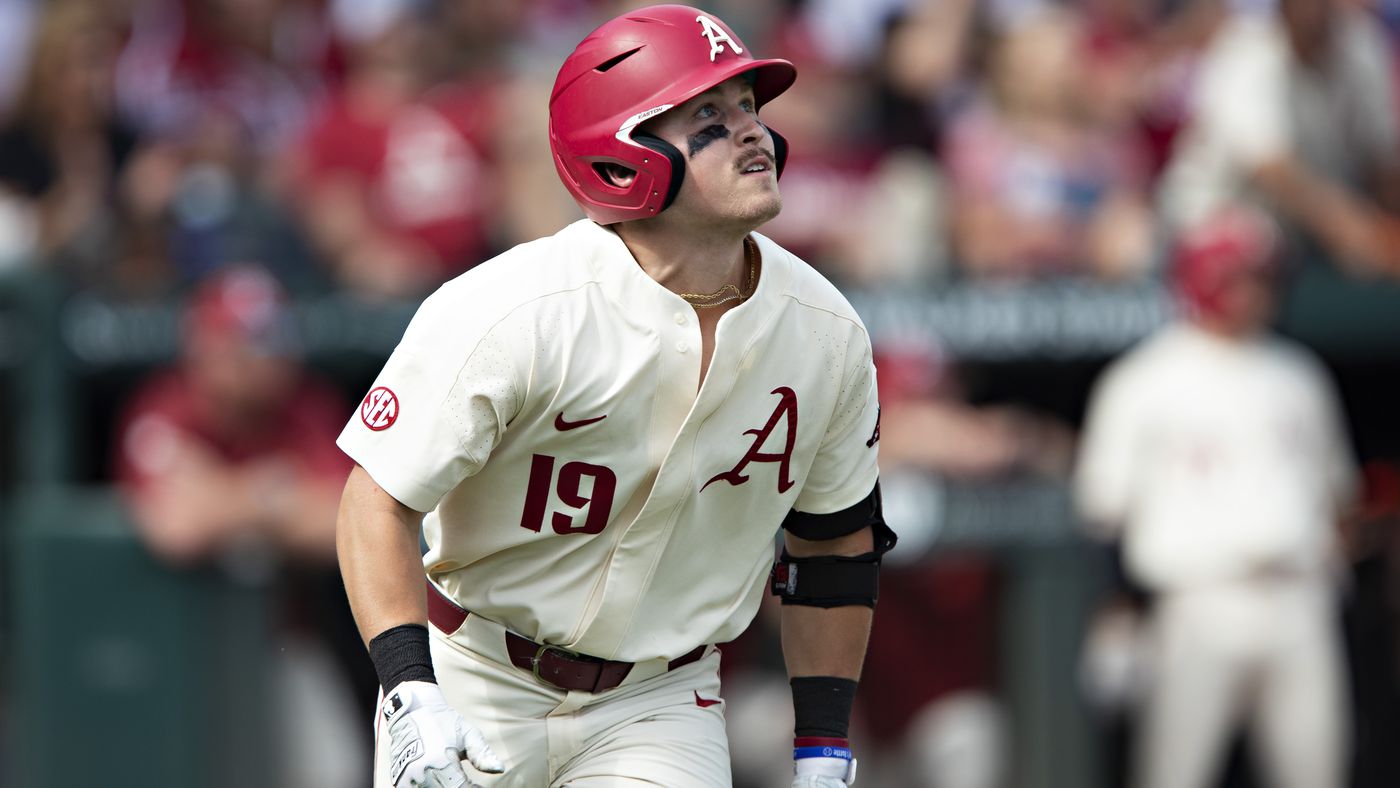
It is no secret that major league baseball is in a lot of trouble. As its self imposed lockout continues, fans are lamenting not just missing out on the start of spring training, but likely part of the regular season as well. Beyond the lockout, Major League Baseball continues to struggle with pace of play issues and waning action, all leading to declining popularity in relation to the NFL and NBA. But what if I told you that there is baseball happening right now, and that it is just as, if not more exciting than anything the MLB will produce this year?
While the MLB squanders the start of its season, college baseball is in its third week of action with no labor negotiations to slow it down, and a baseball product the MLB can only dream of. Here’s why you need to fill your baseball void with college baseball.
Part of the magic of college sports comes with watching young athletes mature into adults before our very eyes, producing unforgettable moments while playing for each other and the love of the game at a school they chose to attend, not a paycheck from a team that selected them. It’s this passion that makes us fall in love with bowl games and March Madness every single year. College baseball is no different, and players routinely display enthusiasm and emotion rarely seen from major leaguers. Go and look up Charlie Welch’s three run homer for Arkansas, or Drew Gilbert’s walk off grand slam for Tennessee, and you will see two of the coolest moments baseball can offer, just from last season. The energy is infectious.
Beyond the atmosphere, the game itself comes in a form both baseball purists and modern fans will appreciate. With a lack of technological resources to help formulate the more advanced data and analytics Major League Baseball relies upon, things like the shift, constant pitching changes, and artificially created game plans simply don’t exist. Ground balls up the middle are hits, and pitchers are relied upon to get deep into games.
College baseball is also by definition, amature, and skill discrepancies between the top tier and lower tier players significantly impacts the game. Sharply hit ground balls or deep flies are often less than certain, injecting tension into every ball put in play. Speaking of balls in play, the lack of universal homerun power throughout many lineups means that singles, bunts, stolen bases, and all the other hallmarks of small ball MLB fans so dearly miss appear regularly alongside the still relevant long ball. The effect of major league prospects facing normal college players means that from time to time, players can dominate and take over games like Adley Rutschman during the 2018 college world series, or Jack Leiter at times last year. Star players are allowed to be stars without the fear of being benched or taken out for a better match up. Pitchers are routinely allowed to go deep into games and struggle through innings in that heroic way we no longer get to see in the MLB, managers knowing that any bullpen arm will be a significant downgrade to their starter.
While this all sounds fantastic, the truth remains that college baseball has never enjoyed the popularity of other collegiate American sports. Many fans incorrectly assume that this is due to the quality of play, and cite factors like aluminum bats, or the increased frequency of artificial turf fields as evidence that the baseball played is different than the game they love. I am here to tell you that ironically, it is far closer to that old “pure” baseball than anything the MLB will produce any time soon.
Unlike collegiate football and basketball, college baseball has always needed to overcome significant structural disparities for its popularity. For one, players do not go straight into the MLB from college, instead spending years cutting their teeth in the minor leagues, making it difficult for fans to track their favorite players beyond their collegiate careers, and tempering any immediate impact they could make to an MLB team that drafts them. Unlike basketball and football, baseball has no rule requiring players to attend college, and many top prospects forgo college altogether for the draft. International signings also compose a significant portion of MLB talent that does not play college baseball. All these factors combined with the reality that baseball is a summer sport and the bulk of college semesters happen during cold months, means that collegiate baseball has never enjoyed the popularity of its two counterparts.
But none of that means its product is any worse. I’d argue it’s better. So while the MLB squanders away its season and fans, maybe it’s time a different baseball season gained some. Go watch some college baseball and tell me I’m wrong.

Must See
-


Basketball
/ 3 years agoScouting Reports and Team Fits for 5 of the Top Prospects in the 2022 NBA Draft
Even with the NBA playoffs raging on into late May, eliminated teams have turned...
-


Athlete Profiles
/ 3 years agoSteven Kwan: Doubt Turned to Success
“The approach and frame show zero promise for game power. Despite having a hit...
By Matthew Suh -


Columns
/ 3 years agoBird’s MLB Season Predictions
Well, welcome back baseball! After a 99 day lockout, which pitted players versus owners...
By Ed Birdsall





